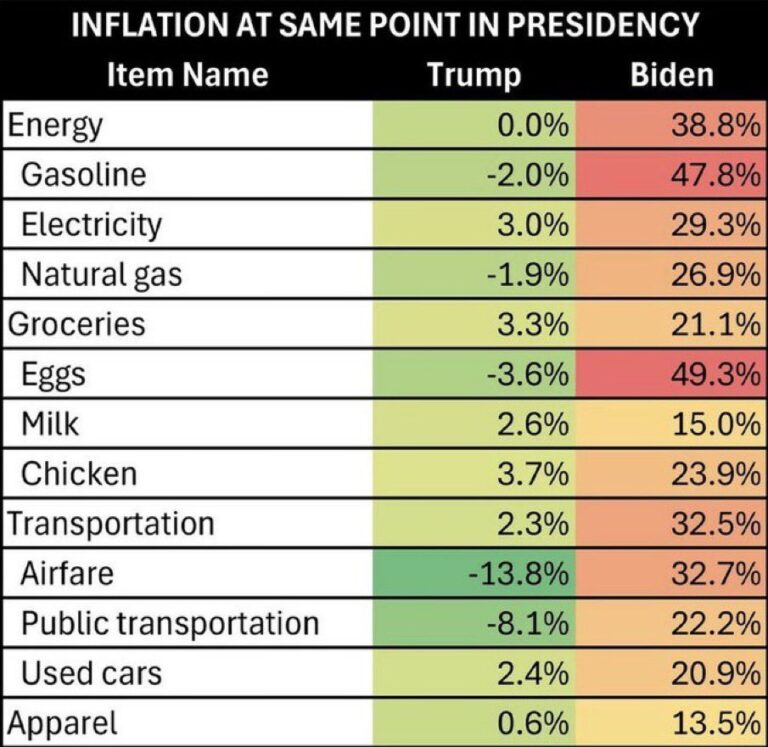Quicken Loans did my first loan and my refinance and both times they were out of this world. I would highly recommend them as well. Next week I'm going to see about getting this PMI paid for by the lender like they keep advertising. I'll post back here after I talk to them.I refinanced my home last year from a 30 year at just under 5% to a 15 year at 3.25%, took out $20k and my payments went up about $50. I don't know about the PMI rules but I DO know that Quicken Loans REALLY took care of me. They kept my closing costs well below $1000, made the process quick and easy and saved me thousands. If you are considering buying or refinancing I'd talk to Quicken without hesitation.
Navigation
Install the app
How to install the app on iOS
Follow along with the video below to see how to install our site as a web app on your home screen.
Note: This feature may not be available in some browsers.
More options
-
ODT Gun Show & Swap Meet - May 4, 2024! - Click here for info
You are using an out of date browser. It may not display this or other websites correctly.
You should upgrade or use an alternative browser.
You should upgrade or use an alternative browser.
Mortgage people - whats the deal with these new mortgage insurance rules and offers??
- Thread starter jjrock
- Start date
Don't lenders also make a nice little sum on the closing costs you pay(or finance into the loan) when you refinance? Even if you lower your interest rates by a percent and save money on your payment, the lender is actually getting another thousand in "origination fee" or whatever it's called(I'm senile. lol) when you close on the loan. So even though they only get back an interest rate of 3.25% over 15 years if you amortized the origination fee into it as well it would add another full % to their return on your loan. Still a hell of a great deal for the borrower but the new refinance is paying off the previous origination fee and you are financing a second origination fee into the refi. So every time you refinance you are paying another origination fee thus compounding their return. It's not hurting you per se but it is helping them just as much as you. So they are more than happy to refinance you every chance they can.
Loans may or may not have an origination fee. GA is an origination state, Florida is not. It's not that Floridians get a better deal, they simply receive a higher rate than Georgians. Like I said there's no magic or free lunch with mortgages. The lender is getting paid one way or the other.
As far as the rate is concerned.. Other than banks that portfolio loans lenders are not reaping the full benefit of the rate. Lenders are not using their money to loan out, the companies providing the funds are the ones receiving the return on the rate. It's not all large corporations you can buy into a mortgage pool or fund and own a piece of someones mortgage yourself. If the lender is not servicing the loan they receive all of their compensation up front and that's it. A lender typically earns fee's up front in the form of an origination fee and then when the loan is sold to a servicer (the company that will collect payments) they receive additional compensation based on the value of the loan (rate, score, equity). The servicer typically recevies .375% of the rate so in other words if the rate is 3.375% the pool or coupon the loan was sold into was 3% and the servicer receives that small spread on every loan it services. A $100,000 loan pays the servicer @ $375 per year in revenues. Sounds like a great deal but remember, the servicer must make the payments to the investor whether you make payments or not. Miss a payment and the servicer has to keep on paying. Pay late and the servicer has to front the payment until they receive it from you and on a mortgage you are talking $20 - $80 per day in interest.
You bring up a great point regarding fees and refinancing. That's why on a refinance it's not not simply the lowest rate that wins because the lowest rate will bring with it the highest costs.
PMI is a real rip-off. You pay the premiums and it pays the lender the outstanding value of your loan if you default, and the lender also gets your house since it was collateral on the loan. Such a deal.
Before PMI you could not buy a home with less than 20% downpayment. A lender typically looses 20%-25% thru a foreclosure, when you put down 5% the lender gets 30% coverage meaning the PMI company will pay up to 30% of the original value to the lender if the loan goes into foreclosure (they get nothing until the home is foreclosed on), with 10% downpayment the coverage is 25%, 15% downpayment and the coverage is 12%. FHA pays between differently but the lender is never guaranteed to be made whole. Remember, even if the home is in foreclosure the lender must continue to make payments to the investor that bought the mortgage backed security until the home is sold. Just because the home was was foreclosed on does not always mean the investor stops getting their return. Figure 2% to hire the attorneys to process the foreclosure, if the lender buys the home (which most banks do) there's a fee to the county for the sale, 10% to market between realtor commissions and closing costs, another 2% to get the home ready to sell and then 9 - 15 months payments (taxes and insurance too) which could easily be another 6%-7% and you have between 20% and 21% in costs. Half of which the servicer has to front until the home sells.
I'm not defending lenders as there were many in the past that were less than standup but... Given the choice of paying PMI and getting a home vs not paying PMI and having to save 20% to put down I'd take the PMI. It's insurance, like renters, car, life etc.. People pay $6 per month for phone insurance on a $400 phone, if the phone was worth 20 times that would they pay $120 per month? A $100,000 house is worth 250 times that and the PMI with 5% down is $71 per month for the average buyer, less for someone with perfect crdit.
Quicken Loans did my first loan and my refinance and both times they were out of this world. I would highly recommend them as well. Next week I'm going to see about getting this PMI paid for by the lender like they keep advertising. I'll post back here after I talk to them.
When you call, ask for an estimate with and without PMI. Depending on what the value is of your home you may be able to drop your PMI in the near future. No PMI now is great however, as I said the rate is higher and once you have that rate it will never go down. Once you reach 80% of the original sales price (or last appraised value if you have refinanced) of your home you can have your PMI removed, on a 30 year loan with 5% down that should be between 7-9 years depending on your rate. A shorter term loan will reach that point much sooner.
Check your balance then run an amortization schedule, you may be closer than you think.
When you call, ask for an estimate with and without PMI. Depending on what the value is of your home you may be able to drop your PMI in the near future. No PMI now is great however, as I said the rate is higher and once you have that rate it will never go down. Once you reach 80% of the original sales price (or last appraised value if you have refinanced) of your home you can have your PMI removed, on a 30 year loan with 5% down that should be between 7-9 years depending on your rate. A shorter term loan will reach that point much sooner.
Check your balance then run an amortization schedule, you may be closer than you think.
All fantastic information, thanks!
In for the answer as well. Bought my house for 60, could probably sell quick at 110. Don't feel like I should be forking over on pmi but Wells Fargo sucks.
In the old days you could get an appraisal from your servicer and if the current value was 20% more than what you owed you could drop PMI. It depends on how long you have had your loan if they will still allow you to do this or not. Call Wells and tell them you want to "petition for removal of your PMI" and need them to send you the requirements based on your loans closing date (there is no "legal" requirement for them to allow an appraisal to drop your PMI but 6+ years ago it was commonplace). Get it in writing, if they don't want to send it to you, talk to a supervisor, even if they mail it you want it in writing. If after you receive their policy you determine they won't let you obtain a current appraisal from a "Wells" approved appraiser you could always refinance at no cost and drop your PMI. I don't know what your rate is now but typically you can refinance at no cost for somewhere between .50% to .75% over current market rates. Even if you only refinanced to the same rate you have today you would be saving money if there was no cost involved.
Last edited:
In the old days you could get an appraisal from your servicer and if the current value was 20% more than what you owed you could drop PMI. It depends on how long you have had your loan if they will still allow you to dothis or not. Call Wells and tell them you want to "petition for removal of your PMI" and need them to send you the requirements based on your loans closing date. Get it in writing, if they don't want to send it to you, talk to a supervisor, even if they mail it you want it in writing. If after you receive their policy you determine they won't let you obtain a current appraisal from a "Wells" approved appraiser you could always refinance at no cost and drop your PMI. I don't know what your rate is now but typically you can refinance at no cost for somewhere between .50% to .75% over current market rates. Even if you only refinanced to the same rate you have today you would be saving money if there was no cost involved.
sub'd because i will want to do this soon.
i'm on my third mortgage holder in 3 years, which do i need to talk to? the current one or the originator?
sub'd because i will want to do this soon.
i'm on my third mortgage holder in 3 years, which do i need to talk to? the current one or the originator?
Current, when you loan is sold your file goes to the new servicer, they have it now so it's their policy.
Current, when you loan is sold your file goes to the new servicer, they have it now so it's their policy.
ok, i'll start looking more into this next week. thanks
Similar threads
- Replies
- 8
- Views
- 206




